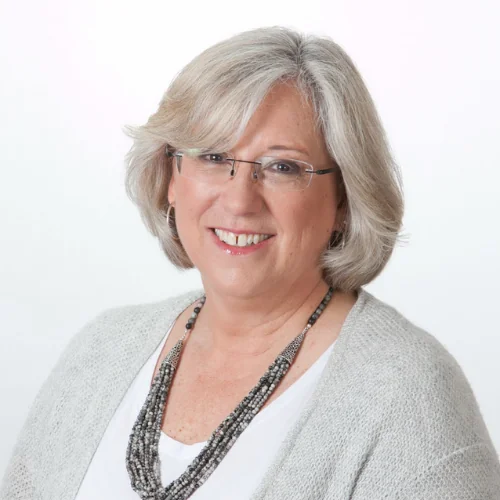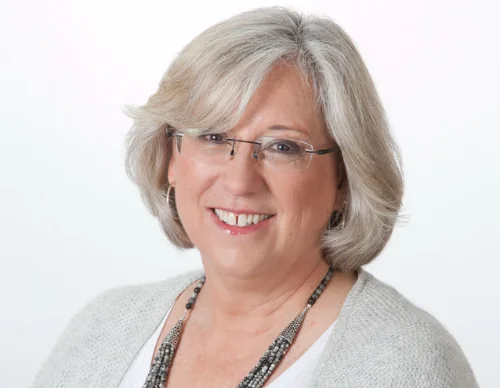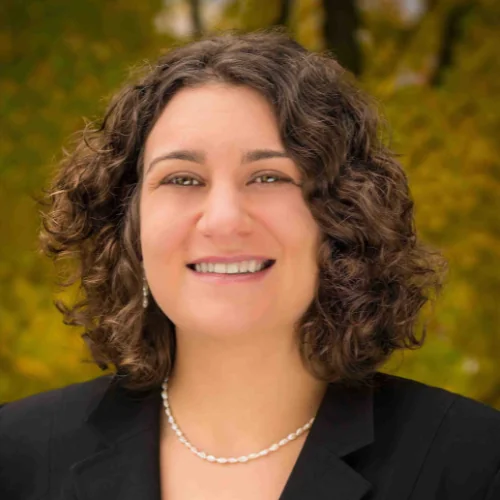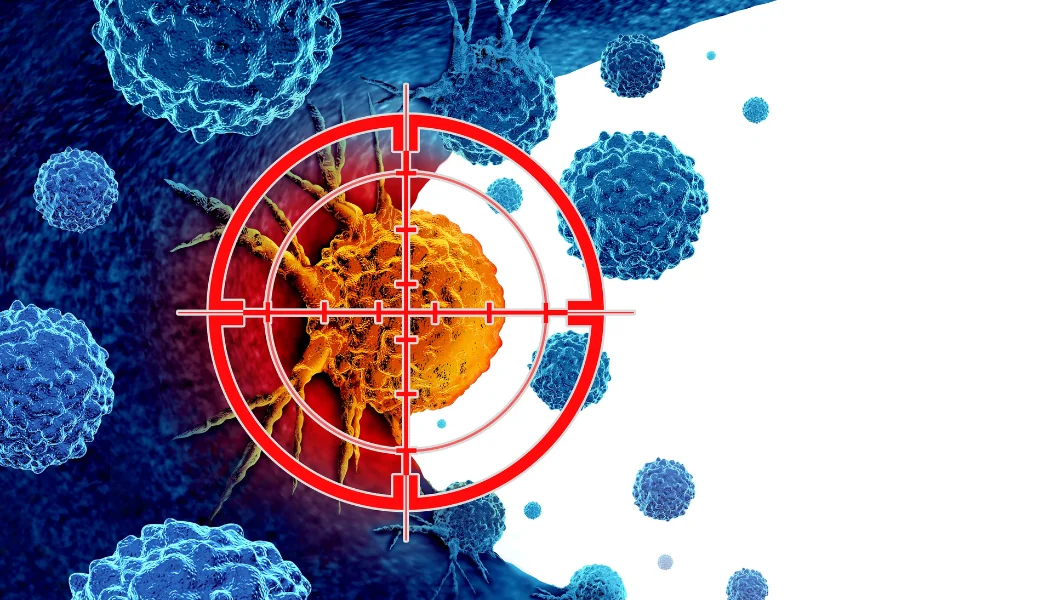Oregon Health & Science University
Cancer-Types Supported
Click a cancer type below to learn more:
Credentials
Chairwoman of the Department of Cell, Developmental & Cancer Biology
Director (interim), OHSU Knight Cancer Institute, School of Medicine
Hildegard Lamfrom Endowed Chair in Basic Science

Research Projects
Immune therapies have revolutionized cancer medicine by re-activating the immune system and enabling its cancer-fighting T cells to again, kill tumor cells. However, for many cancers, including breast cancer (BC) and the deadly triple negative breast cancer (TNBC), the new immunotherapy called immune checkpoint inhibitors (ICIs) are not enough. The ICIs have only a modest response.
While BCs with high levels of cancer-fighting T cells exhibit better overall survival, those with an abundance of macrophages (another immune cell type) instead correlate with a poor outcome. Dr. Lisa Coussens’ research shows that macrophages in BC block the cancer-fighting properties of T cells and thus, aid tumor growth.
Significantly, her lab demonstrated the suppression of T cells by macrophages could be alleviated by a combination of two to four specific combinations of drugs – given in a step-wise addition – with four drugs resulting in the best outcome.
With NFCR support, her lab is evaluating the pathways and protein candidates from omic’ data – such as genomic and proteomic data, (DNA, RNA, and proteins) – in BC models that contribute to a response or resistance to these four treatments.
To accomplish the complex ‘omic’ analyses, Dr. Coussens is collaborating with NFCR-supported scientist, Dr. Elana Fertig, an expert mathematician and systems biologist who develops powerful computer-based methods to analyze ‘omic’ data in response and resistance to cancer treatments. The scientists will compare the candidates from BC models with human datasets.
IMPACT
The identification and validation of biomarkers of the different cell states during the four treatments may predict a patient’s response to each treatment. The biomarkers can help stratify patients for doctors to precisely deliver the treatments to individual patients, improving outcomes for patients with TNBC and other BCs.
Significantly; comparison of the biomarkers to those in datasets for other types of cancer may offer the same precise administration of treatments, giving many patients a better outcome and hope for long-term survival.
Background
Dr. Lisa Coussens is Chairwoman of the Department of Cell, Developmental & Cancer Biology, and Associate Director for Basic Research in the Knight Cancer Institute at Oregon Health & Sciences University, and holds the Hildegard Lamfrom Endowed Chair in Basic Science.
Lisa Coussens received her bachelor of arts in biology from San Francisco State University in 1980. She was a research associate in molecular and developmental biology at Genentech, Inc. from 1981-1988, prior to obtaining her Ph.D. in Biological Chemistry from the University of California Los Angeles in 1993.
Utilizing mouse models of mesothelioma, cutaneous, head and neck, pancreas and mammary carcinoma, her research identified critical immune-regulated pathways for therapeutic targeting that are being clinically translated in combination with chemotherapy in women with metastatic TNBC, pancreas cancer, and head & neck squamous cancer.
Dr. Coussens’ has received multiple awards for her scientific contributions underlying mechanisms of cancer development. She received the American Association for Cancer Research (AACR) Gertrude B. Elion Award (2001) and in 2012, the AACR-Women in Cancer Research Charlotte Friend Memorial Lectureship. She received the 13th Rosalind E. Franklin Award from the National Cancer Institute (2015), a Doctor in Medicine (honoris causa) from the University of Buenos Aires in Argentina (2018), the 12th AACR-Princess Takamatsu Memorial Lectureship (2018), a Career Award from the European Academy of Tumor Immunology (2018), and the 2018 Susan G. Komen Brinker Award for Scientific Distinction in Basic Science. She was elected as Fellow of the American Association for Advancement of Science (AAAS; 2018); Fellow of the AACR Academy (2019); and recently elected as President of AACR (2022-2023).
Collaborator:
Our approach emphasizes a collaborative, team environment to accelerate new breakthroughs.
Accelerate innovative research like this and help save cancer patient lives.
Research Focus Areas
Select a Focus Area Below to learn more and see others working in these area.














